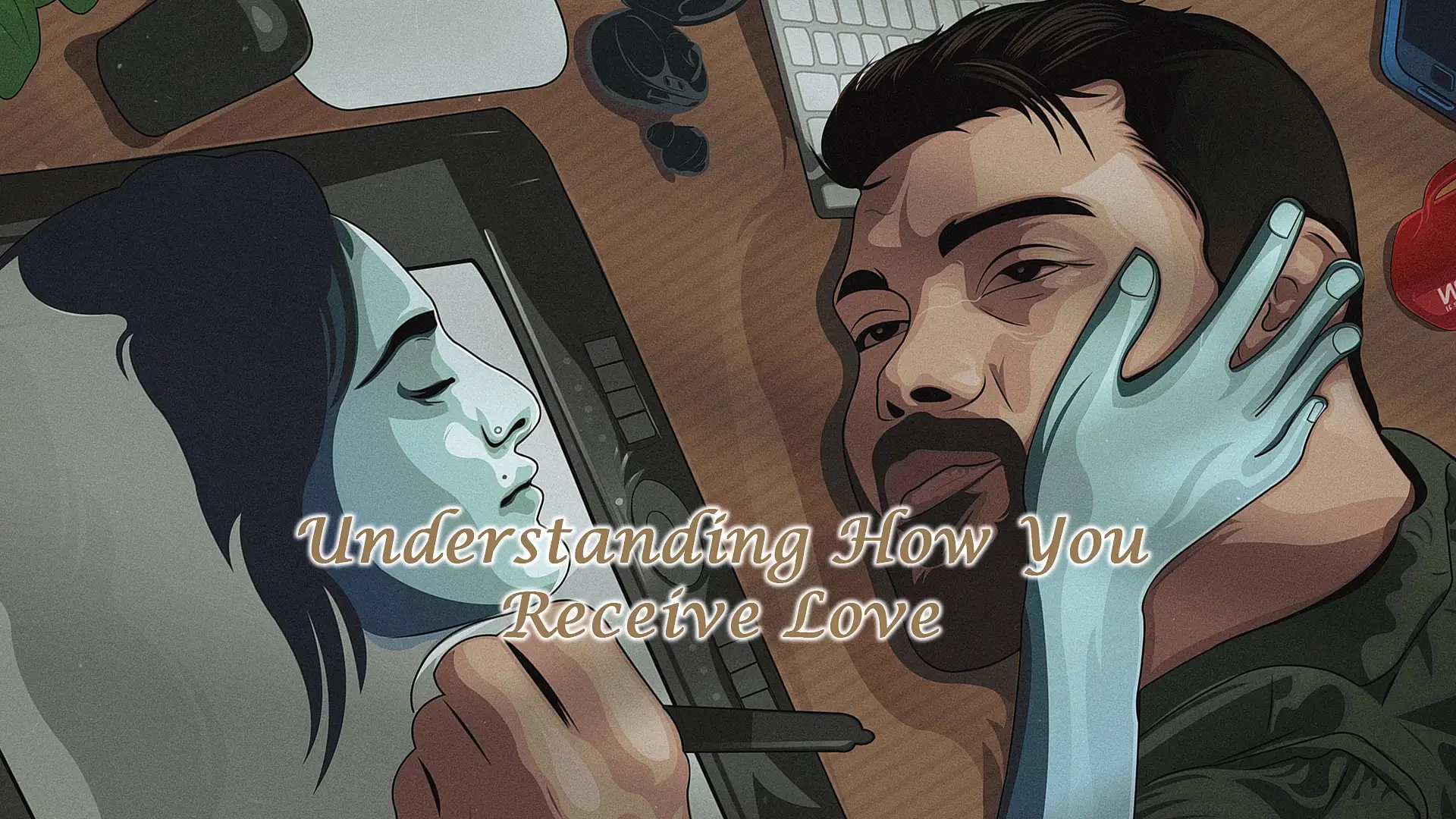Love is a beautiful and complex emotion that we all yearn for in our lives. We often focus on the ways in which we give love to others, but how often do we consider how we receive love? Understanding how to receive love is just as important as giving it. By learning to teach yourself to receive love, you can create deeper, more meaningful relationships and improve your overall well-being. In this article, we will explore the concept of receiving love, the challenges it may present, and practical tips to help you embrace love more fully.
Understanding How You Receive Love
Receiving love involves accepting and embracing affection, appreciation, and care from others, making you more able to receive and appreciate someone’s love. It can come in various forms, such as words of affirmation, acts of service, quality time, physical touch, and gifts. The way you receive love may be influenced by your upbringing, past experiences, and individual preferences.
To teach yourself to receive love, you need to understand your preferred ways of receiving it and communicate those needs to your loved ones. This can help you cultivate healthier, more balanced relationships.
Challenges in Receiving Love
Receiving love can be challenging for several reasons, including past traumas and low self-esteem, but learning to value and receive others’ affection can profoundly impact happiness and well-being.
- Fear of Vulnerability: Opening yourself up to love requires vulnerability, which can be intimidating. Fear of rejection or hurt can make it difficult to accept love from others, a challenge that reminds us of the delicate balance between love and trust.
- Low Self-Worth often stems from a failure to see ourselves as worthy of receiving love, but recognizing our value allows us to welcome and cherish someone’s love, promoting a balance between self-love and love given to us: If you embrace the concept of the five love languages, you’ll see how varied receiving and giving love can be, enhancing every interaction. struggle with feelings of inadequacy or unworthiness, you may question whether you deserve love. This can create a barrier to receiving affection from others.
- Past Trauma: Negative past experiences with love, such as heartbreak or abuse, can create resistance to receiving love in the present, thus devaluing the love others may wish to offer, including the profound impact of someone you love.
- Difficulty Trusting Others often hinders the flow of love like a barrier, emphasizing the need for love and trust to coexist: Trust is essential for receiving love, fostering a deep connection where both love given and love received are valued. If you find it challenging to trust others, you may struggle to accept their affection.
- Independence: While being self-sufficient is admirable, an excessive focus on independence can hinder your ability to receive love. Allowing others to care for you is an important aspect of building connections, fostering an environment where love and trust can flourish.
Practical Tips to Teach Yourself to Receive Love
If you find it challenging to receive love, you are not alone in your journey to learn to love and be loved. Many people struggle with this aspect of relationships. Fortunately, there are practical steps you can take to teach yourself to receive love more fully:
- Practice Self-Compassion: Learn to treat yourself with kindness and understanding, making it easier to accept and receive someone’s love. Recognize your worth and value as a person. Self-compassion can help you feel more deserving of love from others, highlighting the importance of self-love in the process of giving and receiving love.
- Identify Your Love Language: The concept of love languages, popularized by Dr. Gary Chapman, suggests that people express and receive love in different ways. Discovering your primary love language can help you communicate your needs to your loved ones.
- Communicate Your Needs: Once you understand your preferred ways of receiving love, communicate them to your loved ones. Let them know how they can best show you affection.
- Challenge Negative Beliefs: If you have negative beliefs about your worthiness of love, challenge them. Replace these beliefs with positive affirmations that affirm your deservingness of love and enable you to receive love from others.
- Set Boundaries: Establishing healthy boundaries is crucial for receiving love. Make sure you feel comfortable and safe in your relationships.
- Practice Gratitude towards those who offer their love and support, which can encourage a more receptive attitude towards letting yourself be loved: Cultivating gratitude for the love you receive can help you appreciate and accept it more fully. Expressing gratitude to your loved ones can also strengthen your relationships.
- Allow Yourself to Be Vulnerable: Open yourself up to the possibility of being hurt, but also to the possibility of experiencing deep, meaningful love. Vulnerability is key to receiving love.
- Seek Professional Support: If you find it challenging to overcome barriers to receiving love, consider seeking the support of a therapist or counselor to learn how to open yourself up to others’ love. They can help you navigate your emotions and develop healthier relationship patterns.
- Practice receiving compliments as a part of understanding that love comes in various expressions, like the five love languages: Start by accepting compliments graciously. Instead of deflecting or downplaying them, say thank you and embrace the positive feedback.
- Be Present: When others show you love, be present in the moment and fully experience their affection. Mindfulness can help you stay grounded and open to receiving love.

The Importance of Receiving Love
Learning to receive love is not only beneficial for your relationships but also for your mental and emotional well-being. Accepting love can help you: receiving and giving love enriches our connections, making them more meaningful.
- Strengthen connections by actively practicing love means to both give and receive, understanding the dynamics beyond just romantic expressions: Receiving love allows you to form deeper bonds with others, creating a support system that can enhance your life and teach you the importance of nurturing those bonds.
- Boost Your Self-Esteem: When you allow yourself to accept love, you affirm your worth and value, leading to improved self-esteem.
- Experience Greater Happiness: Love is a source of joy and fulfillment, and understanding how to receive love from others can greatly enrich this experience. By receiving love, you open yourself up to more happiness and positivity in your life, letting yourself be loved and cherished.
- Improve Your Overall Health by learning to love yourself and allowing yourself to receive more love: Strong, loving relationships can have a positive impact on your physical health, reducing stress and promoting well-being.
And so
In conclusion, receiving love is a vital part of creating healthy and fulfilling relationships, where love comes in many forms, including self-love and love from others. By teaching yourself to receive love, you can enhance your emotional well-being and experience deeper connections with others. Remember that receiving love is a skill that can be developed over time. Practice self-compassion, communicate your needs, and allow yourself to be vulnerable. As you open yourself up to receiving love, you’ll find that your relationships and overall quality of life improve.




Practicing gratitude and being present in the moment are two things I’ll definitely focus on more to receive love better.
I often find myself struggling with trusting others, so I appreciate the suggestion to seek professional support if needed.
I never realized how important it is to allow myself to be vulnerable to receive love.
I’ve struggled with receiving love due to past trauma, but the tips provided give me hope.